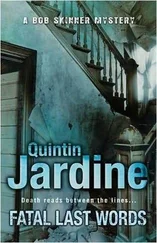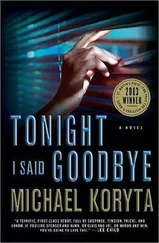“Why?” Blankenship said.
“Um... you know how Ridley was... well, what people thought about him when Sarah Martin was killed.”
“Yes,” Blankenship said coolly. “I know what people thought.”
“Okay. So I knew Sarah. We went to school together. Ran track and cross-country together. We weren’t, like, super- close, but we were teammates, so I knew her, and I followed the story, everybody did.”
Mark was already concerned about his eyewitness. Not only had she misunderstood the context, but he was certain that Ridley hadn’t been mentioned at all on the phone.
“Tell him who the woman said she was when I got down here,” Mark said. “You were taking that whole conversation in and didn’t pretend not to be. Tell him what she said then.”
“The same thing.” Lily didn’t hesitate, didn’t so much as blink. “You came out of the elevator and she thanked you for making time for her—”
“ Thanked me? What are you talking about? She was furious with me!”
“Novak, you say another word and I will put you in the back of my car,” Blankenship said. “Let her finish.”
The clerk was rattled now, looking at Mark uneasily, and he knew he needed to dial down the anger — witness accounts were always varied and rarely accurate, but she was so far off base that it was hard. Her hostility from the previous night had bled over into lies, plain and simple. He exhaled and stepped back, trying to cool off.
“What did you hear her say?” Blankenship asked her.
“She told him that she appreciated him making time for her, and then she said that it was important for him to hear a different perspective on Ridley Barnes from what everyone else around here would tell him. I remember that, because I thought, Well, she must be willing to say something nice about him. Nobody else does.”
“You’ve got to be kidding me,” Mark said. “If you didn’t actually hear what was said, then don’t make shit up! What she told me was—”
Blankenship put a hand on his arm, and the grip was not gentle. The sheriff’s eyes were locked on the clerk, and they were intense.
“Ignore him. Just talk to me. Did you happen to hear any reference to Diane?”
“Diane?”
“Sorry. To Sarah’s mother.”
“No.”
“You say you were teammates with Sarah in high school,” Blankenship said. “Did you know her mother?”
“Of course. Sarah’s mom was always around. Mrs. Martin drove our coach nuts because she loved to bake for us and he didn’t want us eating stuff like that.”
“So if this woman yesterday had identified herself at any point as Sarah’s mother, that would have stood out to you?”
“Are you kidding? Sarah’s mother is dead! Yes, that would have stood out to me.”
“She called Sarah her baby, ” Mark said. “On the phone. She said, ‘What are you doing asking about my baby?’”
“I didn’t hear that.”
“Bullshit! You must have been standing right there! You handed her the phone! Why in the hell are you lying about this?”
“Novak—” Blankenship barked, but this time Mark cut him off.
“No, that deserves an answer! You tell me that Ridley is some sort of town pariah, but I’ve been here for twenty-four hours and it seems that plenty of people are willing to tell elaborate lies on his behalf. Aren’t you interested in why? Or do you already know?”
“Novak, get out. Now.” Blankenship’s grip tightened and he guided Mark to the front door and then pushed him through it, out into the blowing snow. “Wait here. If you so much as open this door, you’ll spend the night in jail.”
He went back inside and Mark stood in the parking lot and watched through the glass as the sheriff continued talking to the girl, who cast frequent, nervous glances at Mark. He stared at them, bristling with anger and fear and trying to fathom why she was lying. Had she been paid, threatened, what? Regardless, she’d been prepped. She had been as ready for this performance as the woman who’d impersonated Diane had been for hers. How in the hell had they put it together so fast? He’d chosen the hotel at random. Nobody had known where he was.
There were answers, but the sheriff wasn’t going to get them. Not from a girl who’d been either bribed or threatened. The answers would come from the people who’d started the game.
Mark left the hotel entrance and walked to his car. He was behind the wheel of the Ford and driving through the parking lot when the sheriff burst out of the hotel doors, shouting for him to stop. Mark ignored him and drove on, heading for Ridley Barnes and truth through any means necessary.
Ridley’s father had been a carpenter when he wasn’t being a drunk, and in those rare hours, he was both gifted and willing to teach. He had no interest in power tools; a true craftsman never used them and that, he claimed, was what separated a master from a journeyman when it came to woodworking. As far as Ridley and his mother and sister could tell, though, all it separated was men who didn’t have jobs from men who did.
But he’d been skilled, there was no denying that, and he’d enjoyed passing the lessons along. Between his first beer and his sixth, he was a marvelous teacher. When he edged toward the seventh, though, the steady hands vanished, and then the patience, and then the temper control. Some kids learned to count on their fingers; Ridley learned to count by his father’s empty beer bottles. Ten down, go underground, he’d rhymed to his sister, but he’d taken that mantra literally. There was an old strip pit on the family land in Stinesville — you couldn’t really call it a cave, because it went nowhere; it was just a hole in the ground, but it went deep and it went dark and it was tight. If you were committed, you could squirm far enough down that you’d never be found by a searching light or, worse, a reaching hand.
His father had been in a pine box for years — actually, there couldn’t be much of the box left by now — and what memories Ridley had of him were far from fond, with one exception: when he worked on wood with hand tools. They were the old tools, too, the ones Ridley had been taught with. And, more than occasionally, the ones he’d been hit with.
One thing his father could do better than any other carpenter Ridley ever saw was join boards so that they appeared to be one piece. He could work them in such a fashion that he seemed to convince the boards themselves that they belonged together. Even a trained eye had trouble finding the seams in Joel Barnes’s work.
But Ridley didn’t think his father had ever hidden a seam better than Ridley himself had with the knee wall in his attic. Under the dim light of the lone forty-watt bulb that lit the room, the wall looked flawless — one straight stretch, surely nothing but insulation and ductwork behind it. The old man would have been impressed. Between beers one and six, he might even have been proud.
As the morning wind rose to a steady moan, Ridley pressed on one corner of the attic knee wall and watched as it moved inward and another panel opened outward like a revolving door, all of it done without a sound. There wasn’t a screw or a nail in the whole thing. It was all built with wood, the door turning on a dowel. The area behind it wasn’t large — eight feet long by four feet deep and only four feet high. While that low ceiling would have driven many people mad, Ridley was used to tight spaces. Once he was inside and the wall was sealed behind him again, he had to use a headlamp or lantern.
There in the hidden room, surrounded by some items it was legal to have and others that would get him arrested, Ridley swung around so he was facing the wall that he’d sealed shut behind him. It was lined with maps — some topographic versions produced by the U.S. Geological Survey and others hand-drawn, produced by Ridley. The topos showed the surface world. Ridley’s showed what went on down below.
Читать дальше












